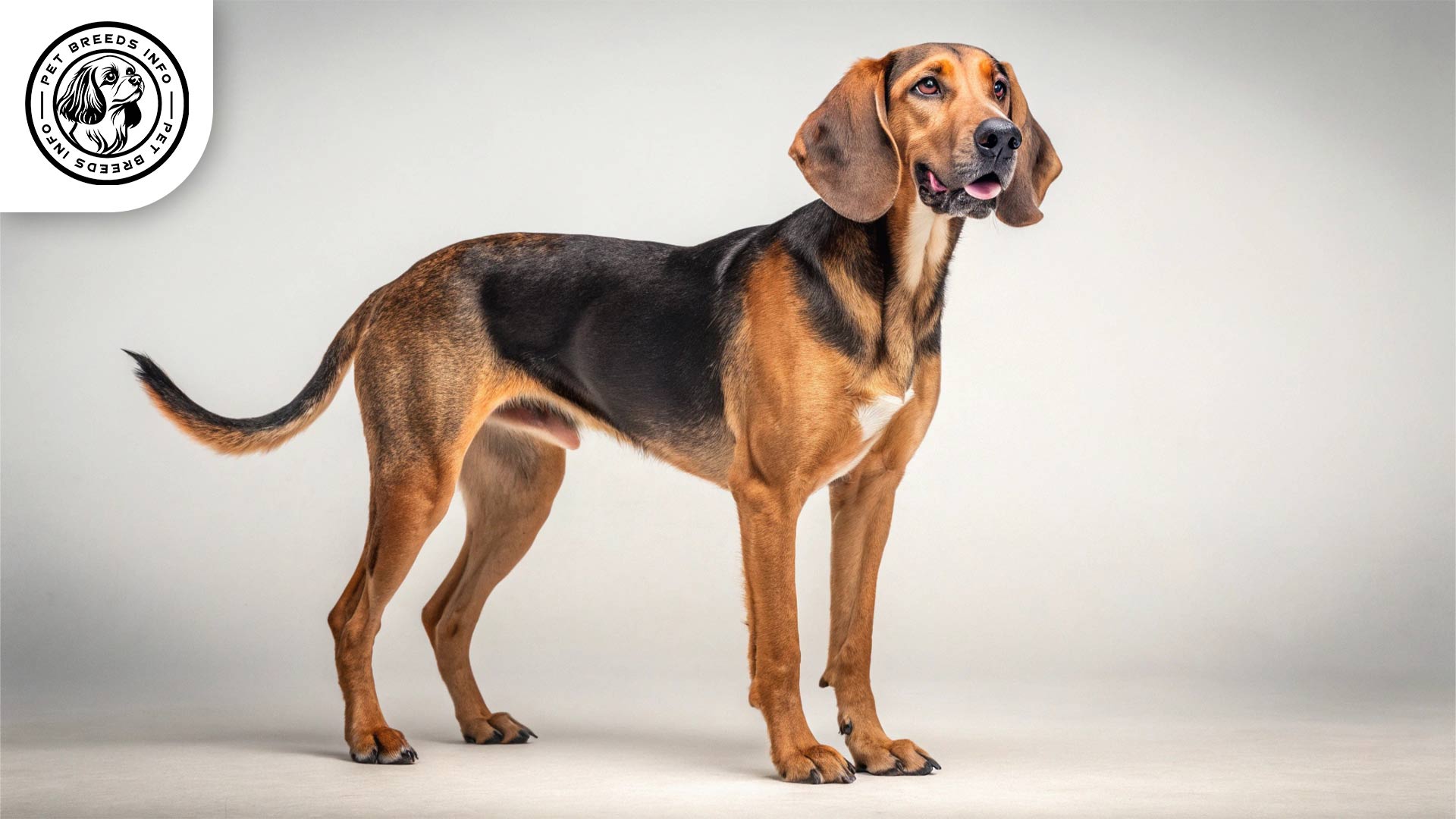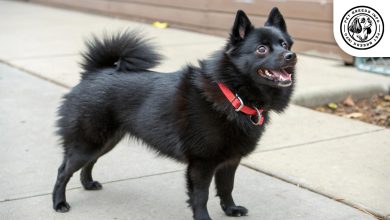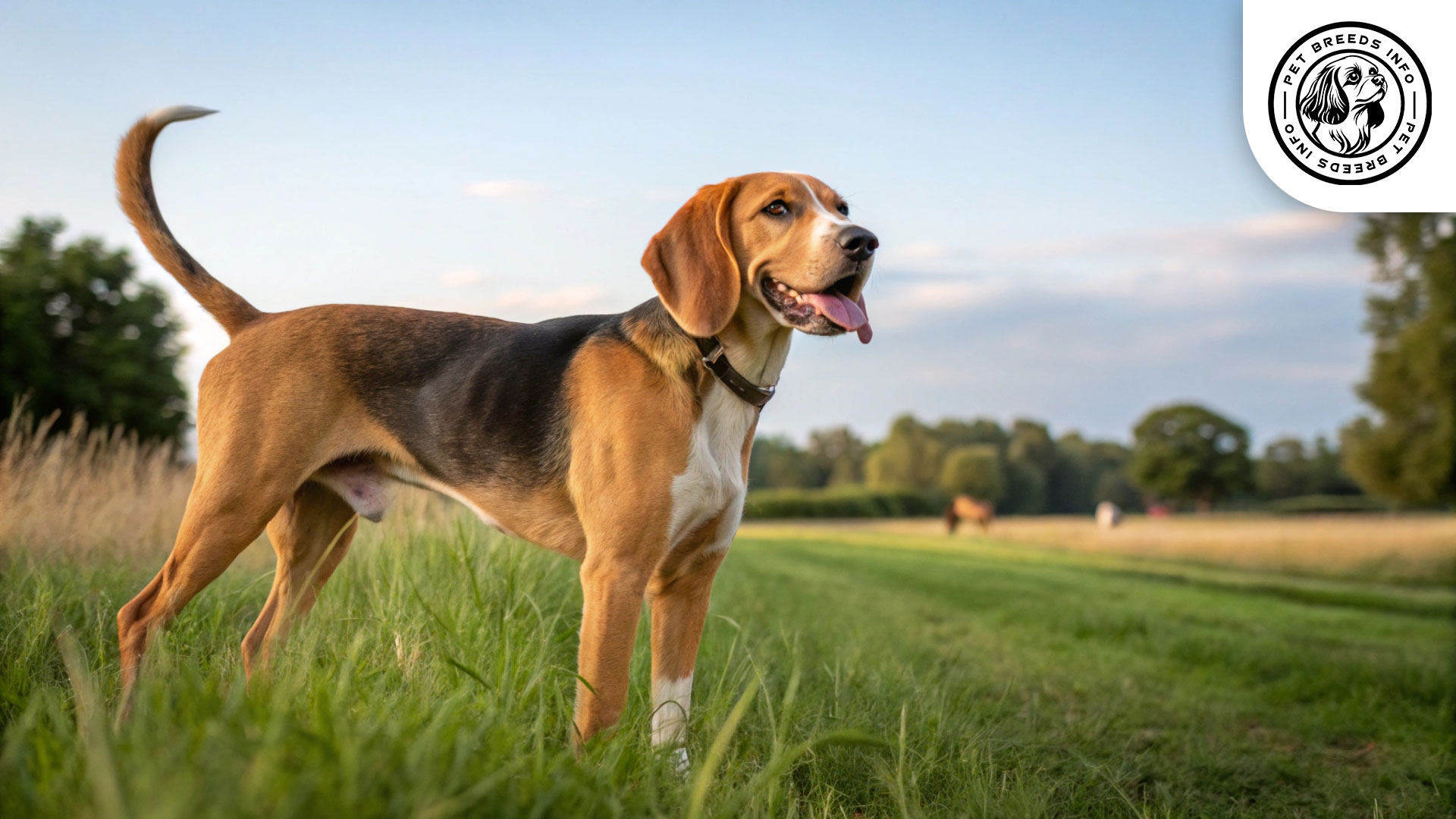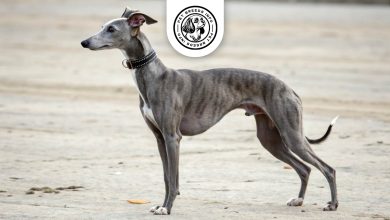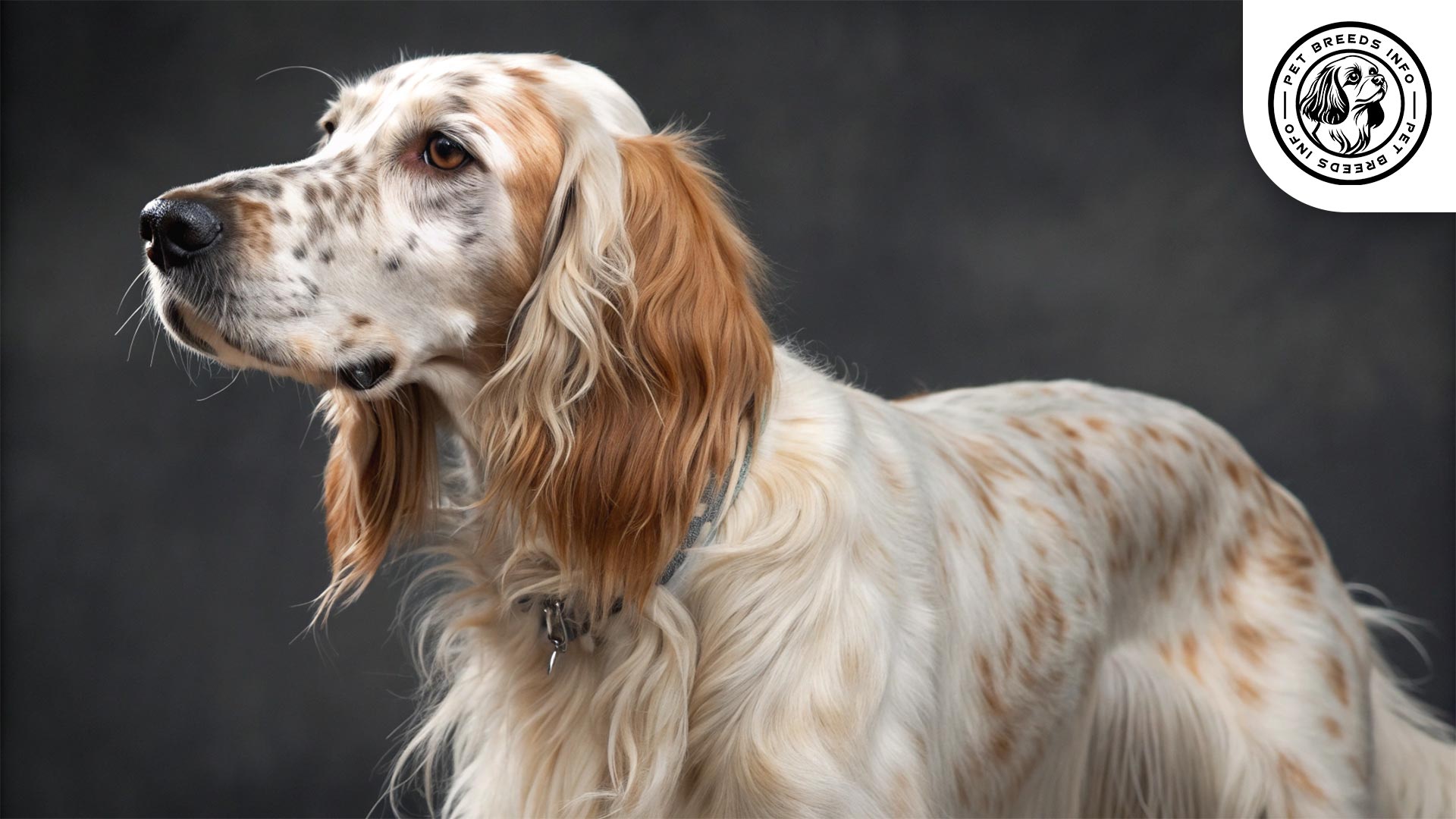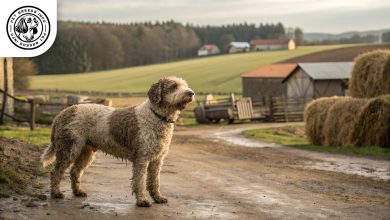German Hound Dog Breed: Size, Health, Price & Personality
General Introduction of the Breed
The German Hound, known as the Deutsche Bracke in its native Germany, is a medium-sized hunting dog developed for its superior scent-tracking abilities. This breed is also sometimes referred to as the German Bracke.
Originating from Germany, the German Hound has a long history dating back to the 18th century. It was bred primarily for hunting in the dense forests of Westphalia and is known for its exceptional nose and endurance. Traditionally, this breed was used by hunters for tracking and driving game such as hare and deer.
Table of Contents
| Weight | 33-40 lbs (15-18 kg) |
| Lifespan | 10-12 years |
| Diet | High-protein kibble, raw food, lean meats |
| Care | Needs daily exercise, minimal shedding, regular ear cleaning |
| Health | Prone to hip dysplasia, ear infections, obesity |
| Color | Tricolor (red, black, white) |
| Nature | Intelligent, energetic, loyal, independent |
| Price | $500-$1,500 |
Physical Characteristics
The German Hound is a medium-sized breed with a lean, athletic build. Males typically stand between 16 to 21 inches (40 to 53 cm) tall at the shoulder and weigh around 33 to 40 pounds (15 to 18 kg). Females are slightly smaller but have a similar general appearance.
This breed has a short, dense coat that lies close to the body. The coat is usually tricolor—a combination of red, black, and white. The most distinctive marking is the white blaze on the head that extends from the nose to between the eyes.
The German Hound has large, round, dark eyes that convey intelligence and alertness. The long, floppy ears hang close to the sides of the head, enhancing its keen sense of hearing. Its tail is of medium length, slightly curved, and often carried high when active.
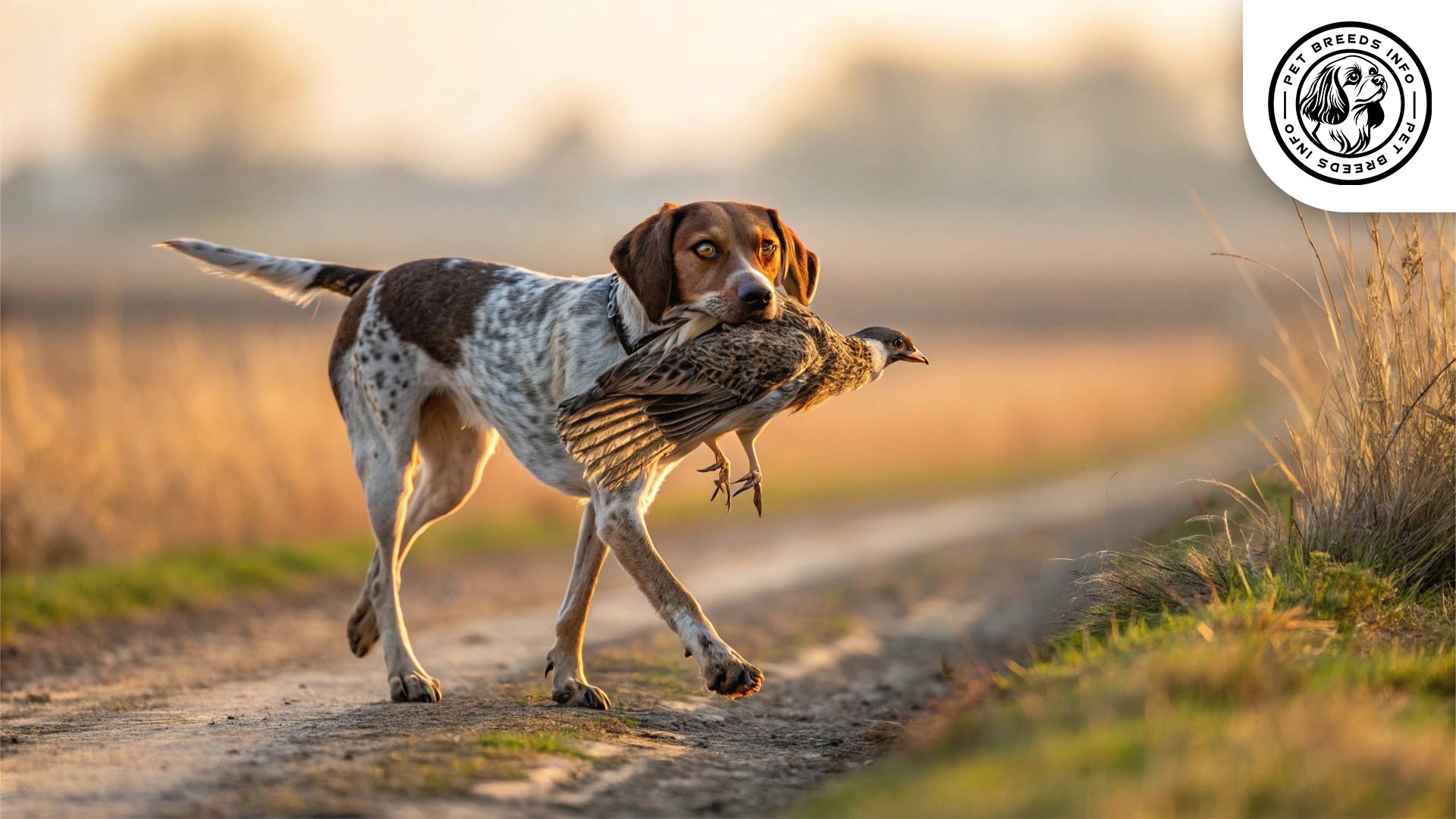
Personality and Temperament
The German Hound is known for its intelligent, friendly, and determined nature. It is a quick learner and highly responsive to training, especially when positive reinforcement is used.
This breed has a high energy level and requires plenty of physical activity. It forms strong bonds with its owner and enjoys human companionship. While affectionate, it is not overly clingy, displaying an independent yet loyal temperament.
The German Hound is usually good with children and can get along well with other pets if socialized early. However, due to its hunting instincts, it may chase small animals. It thrives in an environment with structure and routine and is quite sensitive to changes in its surroundings.
Care and Maintenance Requirements
This breed requires daily exercise, such as long walks, jogs, or playtime in a secure yard. Due to its strong tracking instinct, it is best kept in a fenced area or on a leash when outdoors.
It is ideally suited for homes with spacious areas rather than small apartments. The German Hound has moderate grooming needs. Shedding is minimal, making it easy to maintain with regular weekly brushing. The short coat is easy to clean, and baths are only needed occasionally.
Read More: Czechoslovakian Wolfdog
Regular hygiene maintenance includes trimming nails, cleaning ears to prevent infections, and ensuring proper dental care through brushing or dental treats. This breed can be sensitive to extreme heat, so it is essential to provide shade and water in warm climates.
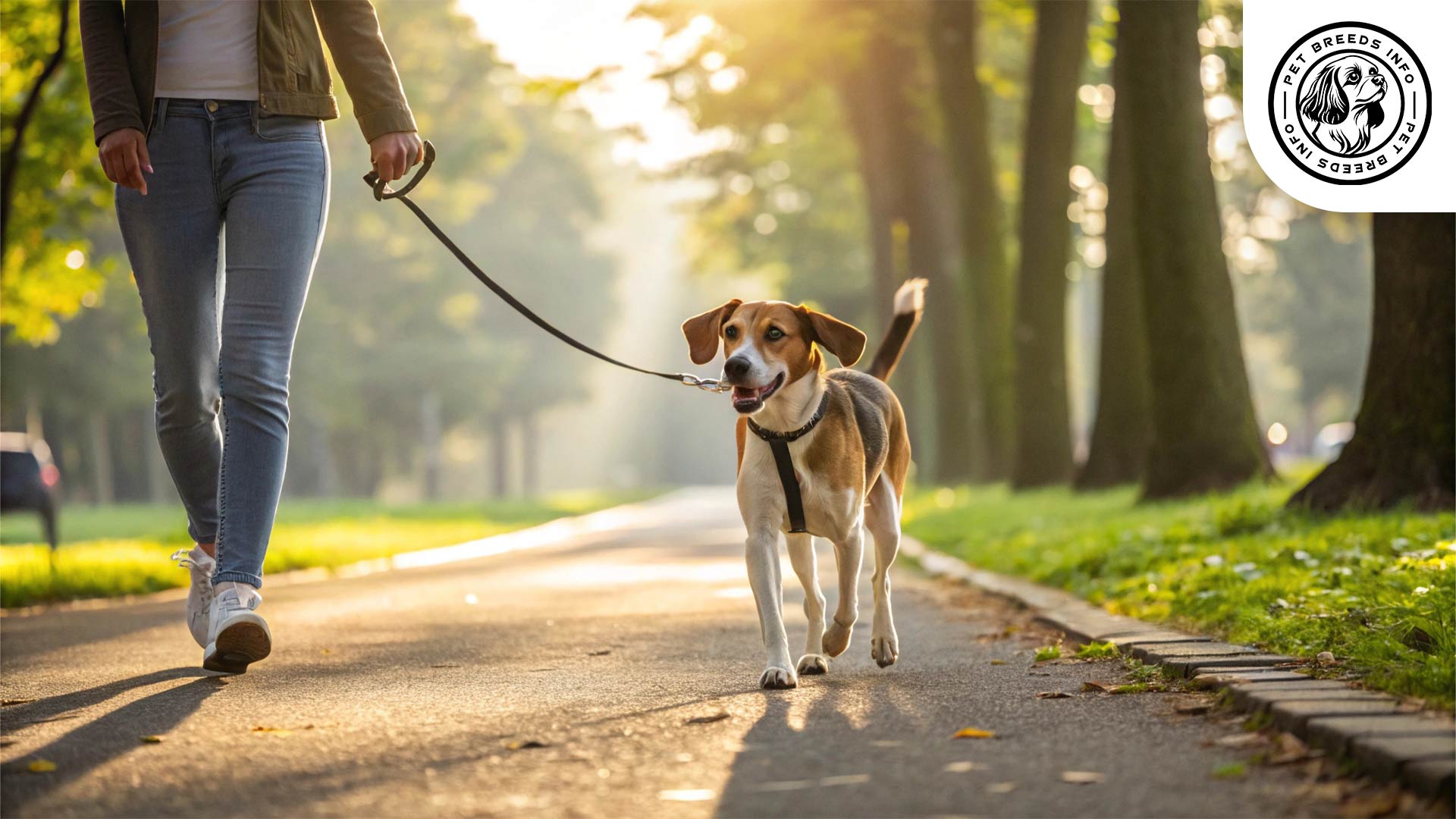
Diet and Nutrition
The German Hound thrives on a balanced diet that includes high-quality dry kibble, wet food, or a raw diet tailored for active hunting breeds. Protein-rich food is essential for maintaining its energy levels and muscle tone.
Common allergens include grains and processed foods, so a natural diet with lean meats, vegetables, and limited grains is recommended. Owners should avoid feeding chocolate, onions, grapes, and high-fat foods, as these can be toxic to dogs.
Meals should be divided into two servings per day to prevent bloating and digestive issues.
Health and Common Medical Issues
The German Hound is generally a healthy breed with an average lifespan of 10 to 12 years. However, like all breeds, it may be prone to specific health concerns.
Common health issues include hip dysplasia, ear infections, and obesity if not exercised properly. Regular check-ups, vaccinations, and parasite control are essential for maintaining overall health.
It is important to monitor for signs of ear infections due to the breed’s long ears, which can trap moisture and debris.
Training and Behavior Management
Training a German Hound is relatively easy due to its intelligence and eagerness to please. However, being a hunting breed, it can be stubborn and requires consistent training.
Read More: French Spaniel Dog
Early socialization and obedience training are crucial to ensuring a well-mannered dog. Positive reinforcement, such as treats and praise, yields the best results.
This breed responds well to commands when training sessions are kept engaging. Harsh methods should be avoided, as the German Hound is sensitive and may become withdrawn.
Interaction with Other Animals and Humans
The German Hound is known for being affectionate with family members. It is good with children but may need supervision around very young kids due to its high energy.
With proper socialization, it can coexist with other dogs, but small pets such as rabbits or hamsters may trigger hunting instincts.
This breed thrives in family environments where it receives attention but can also adapt to individual owners as long as its social and exercise needs are met.
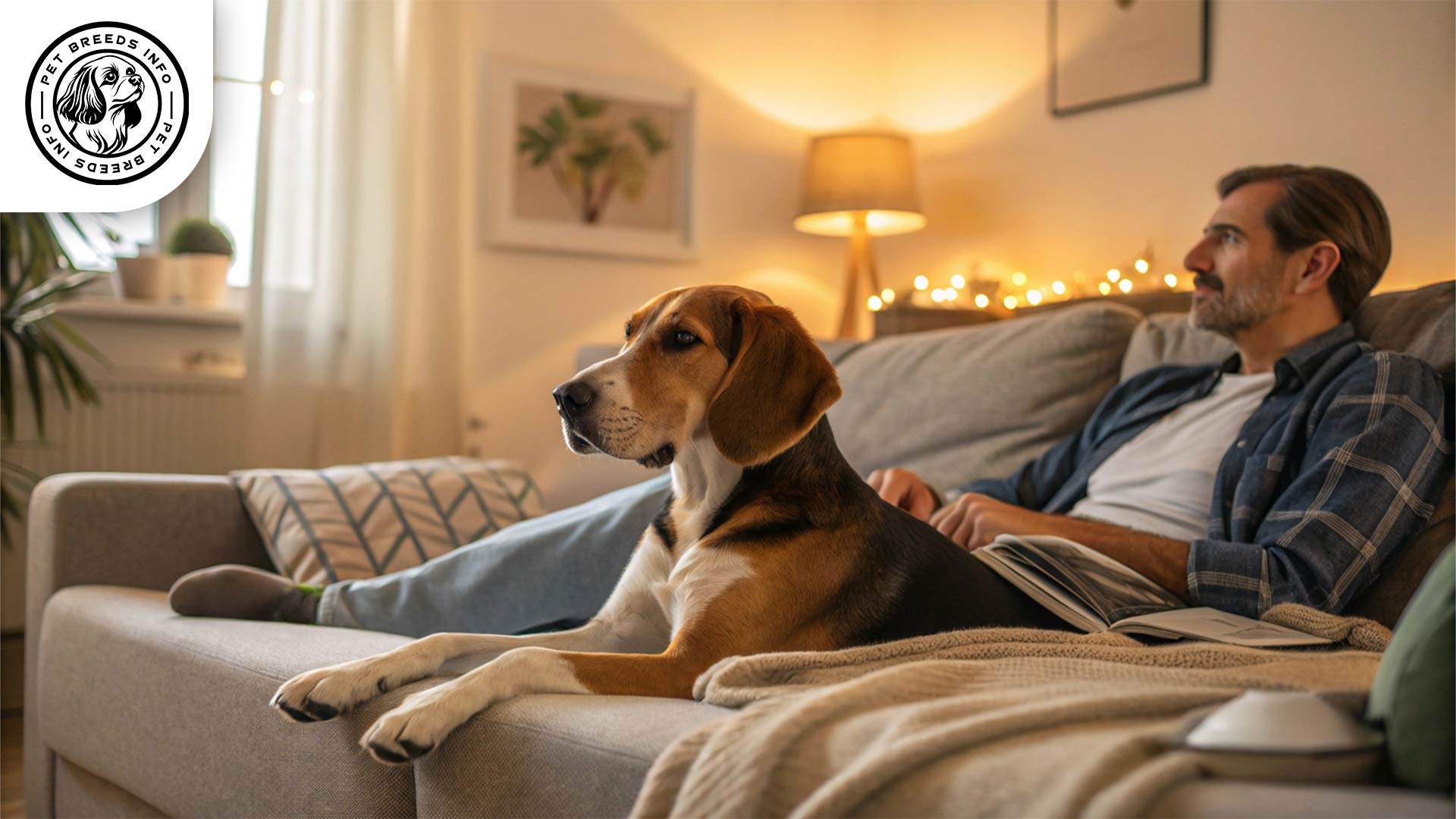
Price and Availability
The price of a German Hound puppy usually ranges from $500 to $1,500, depending on the breeder’s reputation and lineage.
Prospective owners should seek reputable breeders or consider adoption from shelters and rescue organizations. It is essential to verify health screenings and pedigree information before purchasing.
Conclusion and Final Thoughts
The German Hound is an excellent choice for active owners who enjoy the outdoors and can meet its exercise and training needs. It is affectionate, intelligent, and excels as a working or companion dog.
While not suitable for apartment living, it thrives in homes with yards and families who can provide regular engagement. Before choosing this breed, potential owners should be prepared for its high energy and occasional stubbornness.
Read More: Finnish Hound Dog
Overall, the German Hound is a loyal and hardworking breed that rewards its owners with companionship and devotion.
FAQ
Can the German Hound live in an apartment?
Not ideal—this breed thrives in homes with yards and needs plenty of outdoor activity.
How much exercise does a German Hound need?
It requires daily long walks, jogs, or play sessions to stay mentally and physically stimulated.
Does the German Hound shed a lot?
No, it has minimal shedding but requires weekly brushing to keep its coat healthy.
Is the German Hound easy to train?
Yes, it is intelligent and eager to learn but may be stubborn at times; consistent training is key.
